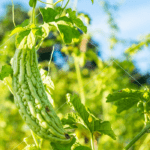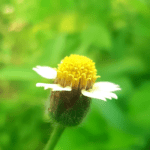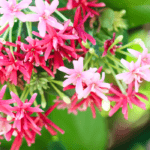The Bitter Truth About Lemon Trees: How to Solve Fruit and Flower Drop Issues
Welcome to our ultimate guide to the issue of lemon fruit and flower drop. If you’re a citrus enthusiast, you’ve probably experienced the heartbreak of watching your precious lemon trees drop their fruits and flowers prematurely. This can be frustrating and confusing, especially when you’ve done everything you know to do to care for your trees. In this comprehensive guide, we’ll explore the causes of lemon tree fruit and flower drop, how to identify the signs and symptoms, and the preventive measures and remedies that will help you keep your trees healthy and fruitful.
Understanding Lemon Trees and Their Growing Conditions
Before we delve into the causes of lemon fruit and flower drop, let’s first take a look at the growing conditions that lemon trees need to thrive.
Soil and Climate Requirements
Lemon trees require well-drained soil that is rich in organic matter. They also need a warm, sunny climate with moderate humidity. Lemon trees prefer a soil pH between 5.5 and 6.5, which is slightly acidic. If your soil is too alkaline, you may need to add sulfur to lower the pH.
Watering and Fertilizing
Lemon trees need regular watering to thrive, but they don’t like wet feet. You should water your trees deeply once a week, or more often if you live in a hot, dry climate. Be sure to let the soil dry out between waterings to avoid overwatering, which can lead to root rot and other problems.
Fertilizing is also important for healthy lemon trees. You should fertilize your trees three times a year, in late winter, late spring, and late summer. Use a balanced fertilizer with a 3-1-2 or 2-1-1 ratio of nitrogen, phosphorus, and potassium.
Pruning and Pest Control
Pruning is essential for maintaining the health and productivity of your lemon trees. You should prune your trees in late winter or early spring, before they start to flower. Remove any dead or diseased wood, as well as any branches that are crossing or rubbing against each other. Prune your trees to maintain a balanced shape and to allow plenty of light and air to reach the interior branches.
Pest control is also important for healthy lemon trees. Some common pests that can affect lemon trees include scale insects, aphids, and spider mites. You can control these pests with insecticidal soap or neem oil, or by introducing beneficial insects like ladybugs and lacewings.
Causes of Lemon Tree Flowers and Fruits Falling Off
Now that we’ve covered the basics of lemon tree care, let’s explore the causes of lemon tree fruit and flower drop.
Natural Causes
It’s natural for lemon trees to drop some of their flowers and fruits as they grow. This is a way for the tree to conserve energy and resources, and to focus on producing high-quality fruits. Lemon trees can also drop their fruits and flowers in response to stress, such as extreme temperatures or drought.
Environmental Causes
Environmental factors can also cause lemon tree fruit and flower drop. Excessive heat or cold, strong winds, and heavy rain can all damage the flowers and fruits, causing them to drop prematurely. Inadequate or uneven watering can also stress the tree, leading to fruit and flower drop.
Pests and Diseases
Pests and diseases can also cause lemon tree fruit and flower drop. Some common pests that can affect lemon trees include thrips, fruit flies, and citrus leaf miners. These pests can damage the flowers and fruits, causing them to drop prematurely. Diseases like citrus canker and root rot can also affect the health of your lemon trees, leading to fruit and flower drop.
How to Identify Lemon Tree Flower and Fruit
When it comes to identifying lemon tree flower and fruit drop, it is essential to know the signs and symptoms, as well as conduct diagnostic tests to confirm the underlying cause. Here are some tips to help you identify lemon tree flower and fruit drop:
Signs and Symptoms
One of the most apparent signs of lemon tree flower and fruit drop is the presence of fallen flowers and fruits on the ground. Additionally, you may notice that the flowers and fruits on the tree start to wither and drop prematurely.
Another symptom of lemon tree flower and fruit drop is discoloration of the leaves. The leaves may turn yellow, brown, or even black, depending on the underlying cause.
Diagnostic Tests
To accurately identify the cause of lemon tree flower and fruit drop, you may need to conduct some diagnostic tests. For example, you can collect a sample of the affected plant tissue and take it to a local laboratory for analysis. The laboratory will test the sample for various diseases, pests, and nutrient deficiencies to determine the root cause of the problem.
Another way to diagnose lemon tree flower and fruit drop is to conduct a soil test. This test will help determine if the soil has the proper pH and nutrient levels to support healthy lemon tree growth.
In addition to these tests, it’s crucial to regularly inspect your lemon trees for any signs of stress or damage. By catching problems early, you can take action before the situation worsens and causes more damage to your trees.
Preventive Measures for Lemon Tree Flower and Fruit Drop
Proper care and maintenance can go a long way in preventing flower and fruit drop in lemon trees. Here are some preventive measures you can take:
Proper Watering and Fertilizing:
Lemon trees require consistent watering and regular fertilizing to stay healthy. Water your lemon tree deeply but infrequently, and make sure the soil is well-drained. Apply a balanced fertilizer at the beginning of the growing season and reapply every six to eight weeks during the growing season.
Pruning and Thinning:
Proper pruning and thinning can help reduce flower and fruit drop. Prune your lemon tree in the early spring to remove dead, diseased, or damaged branches. Thin out the fruit on the tree so that each remaining fruit has enough space to grow and mature.
Pest and Disease Control:
Keep your lemon tree healthy and pest-free by regularly inspecting it for signs of pests and diseases. Use organic pest control methods such as releasing beneficial insects or applying neem oil.
Natural Remedies for Lemon Tree Flower and Fruit Drop
If you prefer natural remedies to synthetic pesticides, here are some options that you can try:
Neem Oil:
Neem oil is a natural insecticide that can help control pests such as aphids, mealybugs, and scale insects. Mix one teaspoon of neem oil with one quart of warm water and spray the solution on your lemon tree leaves and fruit.
Garlic Spray:
Garlic spray can help control fungal diseases such as powdery mildew. Crush several garlic cloves and mix them with a quart of water. Let the mixture sit overnight and then strain out the garlic. Spray the solution on your lemon tree leaves and fruit.
Soap Spray:
Soap spray can help control pests such as spider mites and whiteflies. Mix one tablespoon of liquid soap with one quart of water and spray the solution on your lemon tree leaves and fruit.
Chemical Treatments for Lemon Tree Flower and Fruit Drop
If natural remedies don’t work, you may need to resort to chemical treatments. Here are some options:
Insecticides:
Use insecticides to control pests such as aphids, mealybugs, and scale insects.
Fungicides:
Use fungicides to control fungal diseases such as powdery mildew.
Miticides:
Use miticides to control spider mites.
Best Practices for Maintaining Healthy Lemon Trees
To maintain healthy lemon trees and prevent flower and fruit drop, here are some best practices to follow:
Regular Inspections and Monitoring:
Regularly inspect your lemon tree for signs of pests, diseases, or stress. Keep an eye on the soil moisture level and make sure your tree is getting enough water.
Timely Action and Intervention:
If you notice any problems, take action as soon as possible. Early intervention can prevent more serious problems down the line.
Continuous Learning and Improvement:
Keep learning about lemon tree care and stay up to date on the latest best practices. Attend workshops, read books, and talk to other lemon tree growers to continuously improve your skills and knowledge.
Most Frequently Asked Question (FAQ) about Lemon Tree Flower and Fruit Drop
How do I prevent lemon tree flower and fruit drop – Summary of the entire article?
To prevent lemon tree flower and fruit drop, make sure to follow some preventive measures:
• Proper Watering and Fertilizing: Lemon trees need adequate water and nutrients to grow and produce healthy flowers and fruits. Water the tree deeply and evenly, and fertilize it with a balanced fertilizer containing nitrogen, phosphorus, and potassium. However, avoid overwatering and over-fertilizing, as this can also cause flower and fruit drop.
• Pruning and Thinning: Regular pruning and thinning of lemon trees can promote better air circulation and light penetration, which can reduce the risk of pest and disease infestation, and help the tree focus its energy on producing quality flowers and fruits.
• Pest and Disease Control: Keep an eye out for common pests and diseases that can affect lemon trees, such as citrus psyllids, scale insects, and fungal diseases. Use appropriate pest and disease control methods, such as spraying with horticultural oil or insecticidal soap, or applying copper-based fungicides.
If you prefer natural remedies, here are some options to try:
• Neem Oil: Neem oil is a natural pesticide that can repel and kill many common garden pests, including aphids, spider mites, and whiteflies. Mix neem oil with water and apply it to the lemon tree leaves and stems.
• Garlic Spray: Garlic spray is another natural pest repellent that can deter aphids, thrips, and other pests. Crush a few cloves of garlic and mix with water, then spray onto the tree.
• Soap Spray: Soap spray is a simple and effective way to control soft-bodied pests like aphids, spider mites, and mealybugs. Mix liquid soap and water in a spray bottle, and apply to the affected parts of the tree.
If natural remedies are not effective, you can consider using chemical treatments, such as:
• Insecticides: Insecticides are chemicals that can kill or repel insect pests. Choose a product that is labeled for use on citrus trees, and follow the instructions carefully.
• Fungicides: Fungicides are chemicals that can control or prevent fungal diseases. Use a copper-based fungicide to treat common lemon tree diseases like citrus scab or powdery mildew.
• Miticides: Miticides are chemicals that can control spider mites and other mites that can damage lemon tree leaves and fruit. Use a product that is labeled for use on citrus trees.
To maintain healthy lemon trees, it is important to follow some best practices, such as:
• Regular Inspections and Monitoring: Check your lemon trees regularly for signs of pests, diseases, and nutrient deficiencies. This can help you detect problems early and take timely action to prevent further damage.
• Timely Action and Intervention: If you notice any issues with your lemon trees, take immediate action to address them. This can help prevent further damage and ensure the health and productivity of your trees.
• Continuous Learning and Improvement: Keep learning about the best practices for growing and caring for lemon trees, and be open to trying new techniques and methods to improve the health and productivity of your trees.
Here are some other common FAQs about lemon tree flower and fruit drop:
• What causes lemon tree flowers and fruits to fall off?
Lemon tree flowers and fruits can fall off due to various factors, such as overwatering, under-fertilizing, temperature stress, pest and disease infestations, and lack of proper care.
• Can I save my lemon tree if it is already dropping flowers and fruits?
Yes, you can still save your lemon tree if it is already dropping flowers and fruits. However, you need to identify the underlying cause of the problem and take corrective action. First, ensure that the tree is properly watered and fertilized. Then, inspect the tree for any signs of pests or diseases, and take appropriate measures to control them. Pruning and thinning can also help improve the tree’s health and reduce flower and fruit drop.
Conclusion
Thank you for reading our comprehensive guide on identifying and preventing lemon tree flower and fruit drop. We hope you found it informative and useful. If you have any further questions or would like to learn more about urban farming, please visit our website at www.shehrikisaan.com. At Shehri Kisaan® — The Urban Farmers, we are passionate about promoting sustainable and responsible agriculture practices in urban areas. Join us in creating a greener and healthier environment for all.







